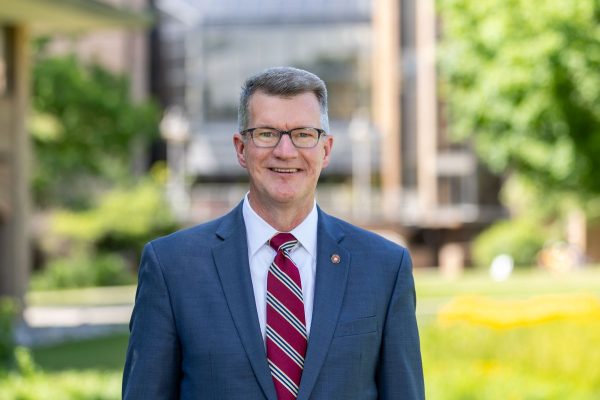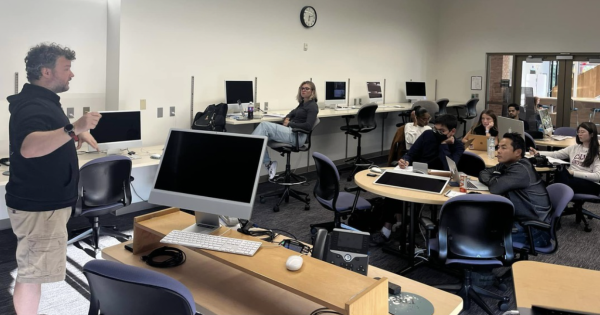Strong U.S. dollar increases costs for international students
As the dollar goes up in value on the foreign exchange market, many national currencies have gone down, a trend that doesn’t seem to be easing up any time soon.
Junior economics major Misgana Dinberu hopes to spend the upcoming spring semester in Washington, DC getting valuable internship experience. As an international student from Ethiopia, however, she’s unsure if the strength of the U.S. dollar will make it too difficult for her family to cover the costs.
Dinberu is not alone. Due to the recent rise in the value of the U.S. dollar, many international students and their families now have to pay more of their countries’ currencies to cover Calvin tuition and other expenses in U.S. dollars.
The issue is most likely being fueled by the global economic downturn, according to economics professor Sung Soo Lim. A currency’s value is determined by the supply and demand for that currency in the foreign exchange market. Because the dollar is generally considered the safest currency to hold during economic uncertainty, there’s more demand for it now. Additionally, the Federal Reserve is on track to increase U.S. interest rates faster than other major countries. This is a move that attracts foreign investment and also raises demand for U.S. currency.
The families of Korean international students now have to send about 33% more money for tuition and costs than they would have at the beginning of the year, Lim told Chimes. For families in Ghana, the increase has been almost 80%. “I wouldn’t be surprised to find countries with even worse situations,” Lim said.
Dinberu said this issue has impacted her family in a number of ways. Due to an ongoing war in Ethiopia’s Tigray region, there’s not enough U.S. currency in the banks for everyone who wants it. Dinberu’s parents have had to resort to paying for her school costs through parallel markets, which is a more expensive process. They’ve also asked Ethiopians they know in the U.S. to make the payments in dollars in exchange for giving the equivalent value of birr, the Ethiopian currency, to relatives back home.
“Knowing the amount of effort that my parents are putting in to send me here is kind of a huge burden to carry,” Dinberu told Chimes.
She attributes the fact that her family has been able to make Calvin payments on time so far to a miracle. “With how things are going, it wasn’t promised whatsoever,” she said.
Senior speech pathology major Caasi Tica echoed many of Dinberu’s sentiments. She noted that, while an American low-wage job might pay ten dollars an hour, some of her friends back home in the Philippines make the equivalent of ten dollars a day. “Americans don’t know what their dollar could get them,” she said.
According to Lim, it’s hard to predict how long the current economic situation will last.
“The growth outlook for the world economy is not getting better,” he said. “Moreover, there is still a wide gap between the current inflation rate (8.2%) and the target inflation rate (2%), which implies that the Fed[eral Reserve] is likely to increase the interest rates for a while.”
Lim emphasized that Calvin international students are more vulnerable to the exchange rate issue than those at other universities, since many are the children of pastors and missionaries and come from countries that have less power to protect themselves against exchange rate shocks. “We all need to work together to help them,” he said.









